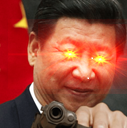Money isn’t a made up concept. It’s a stand in commodity, a universal exchange commodity. It represents the exchange value of socially useful labor.
Money is fetishized and treated like a think in itself. You’re not buying made up things with it. You “buy” money with labor and purchase the products of other people’s labor. You can print all the money you want but it doesn’t expand the sum of national useful social labor. If the money newly printed remains in circulation it will simply water down the exchange value represented per unit. You can print money but you can’t print tangible commodities; you can’t print bread, oil, houses, electricity.
Your premise is a lazy cope out. Social constructs are mutually agreed upon, but without a material basis then there would be no purpose: no material consequence.
The belief that money is imaginary harms the working people directly responsible for the creation of social value, while benefiting the wealthiest members of society whose business is the extraction of social value from the working people. It totally alienates the worker from their role. They believe that they are being paid by the capitalist in imaginary figures something that belongs to the capitalist. In reality the value represented by the money they are paid as well of the money they weren’t paid was born from them, by their labor.
The central claim of those who celebrated postmodernism is that we have entered a world in which all totalizing systems—science, humanity, nation, truth, and so forth—have all been shattered; in which there are no longer any grand mechanisms for stitching together a world now broken into incommensurable fragments. One can no longer even imagine that there could be a single standard of value by which to measure things. The neoliberals on the other hand are singing the praises of a global market that is, in fact, the single greatest and most monolithic system of measurement ever created, a totalizing system that would subordinate everything—every object, every piece of land, every human capacity or relationship—on the planet to a single standard of value.
It is becoming increasingly obvious that what those who celebrated postmodernism were describing was in large part simply the effects of this universal market system, which, like any totalizing system of value, tends to throw all others into doubt and disarray. The remarkable thing is that they failed to notice this fact. How? And why has it been so difficult for them to come up with a way to criticize a system that would seem to fly directly in the face of everything they are calling for?
Probably the reason is because those who used terms like “postmodernism” did not, in fact, see themselves as calling for anything. They were not writing manifestos for a postmodernist movement. They thought they were simply describing something that was already taking place, inexorably, through the movement of one or another sort of structural force. And in this their attitude was, again, merely an exaggerated version of a much more common one. This, I think, is the best explanation for the current paralysis. To put it bluntly: now that it has become obvious that “structural forces” alone are not likely to themselves produce something we particularly like, we are left with the prospect of coming up with some actual alternatives. Even aside from the always-daunting fact that this would mean deciding who “we” are, it would require a massive change of theoretical habits. It would mean accepting that people, as part of social movements of one kind or another, might be capable of affecting the course of history in a significant way. That alternatives can indeed be created, and not just come about. That would in turn mean having to give some serious thought to what role intellectuals can legitimately play in this process, and how they might do so without fomenting the kind of stupid sectarian dogmatism we’ve so often ended up fomenting in the past.
- David Graeber: Toward an Anthropological Theory of Value
Maybe I’m misunderstanding. it appears you’re accepting the Austrian framing, but it’s simply not anthropologically accurate. Money did not emerge as a means to measure value.
Today, money is a poor means of measuring value precisely because it is abstracted from labor time. Society must use labor time credits in exchange to allow for rational economic planning. Kantorovich demonstrated that economic planning can be done in natural units. Paul Cockshott’s anti-lgbt+ shit is incredibly annoying but he’s done excellent work on this topic.
Additionally, social constructs necessarily have material impact. That’s what differentiates them from ideas people randomly have.
But again I might be confused by what you’re saying so apologies if I’m ham-fistedly rehashing a topic you already understand.



